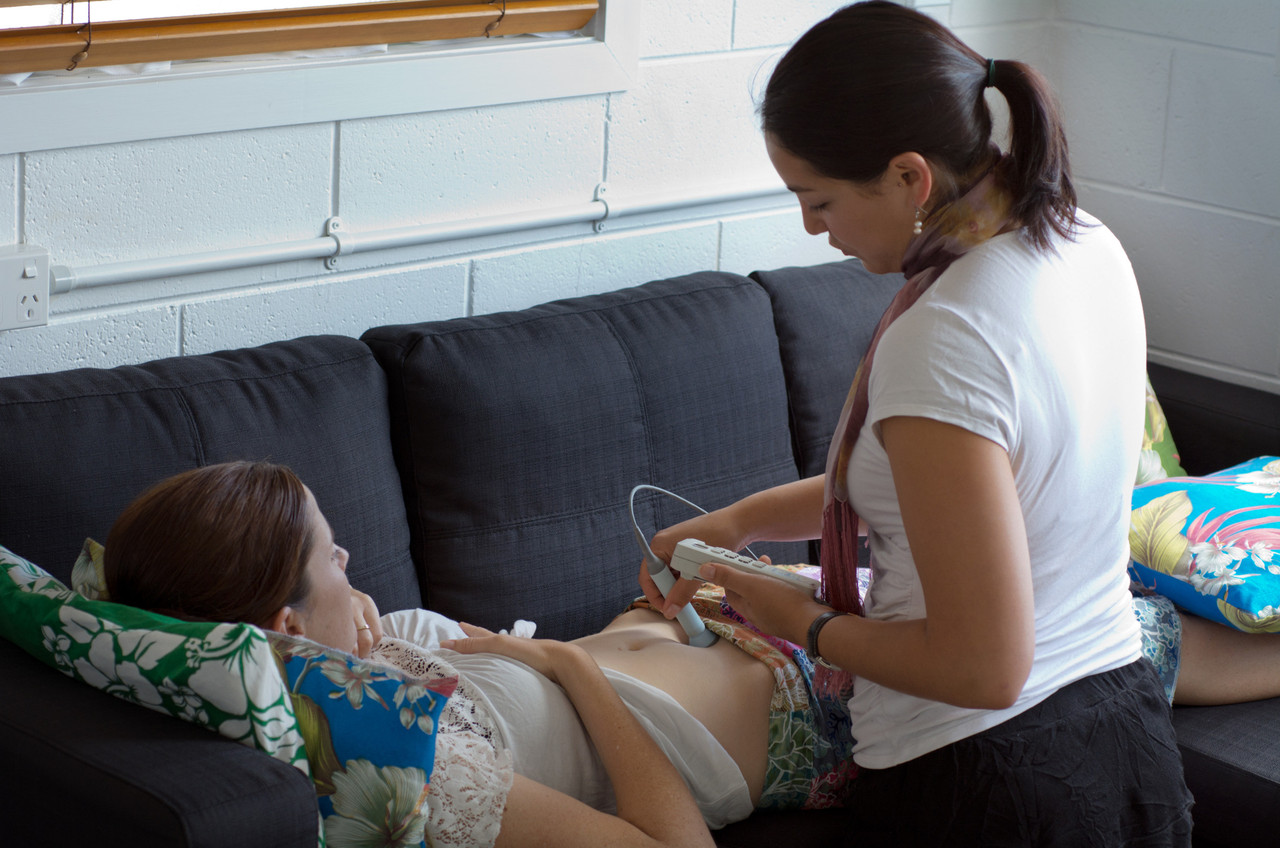The Lunata birth house in Bertrange, opened in September, was meant to allow midwives to work with mothers-to-be on a one-to-one basis from the lead-up to their labour to post-natal care. Due to a difference in the interpretation of the law, no babies may be born at the centre, health minister (LSAP) ruled.
A slow process despite demand
“It’s urgent that we come to an agreement because the number of requests is so gruesome,” said Laure Baumann, a midwife. Baumann presides the Gebuertshaus Lëtzebuerg non-profit, which has been pushing for the creation of a clear legal framework around midwiferies in Luxembourg.
The national health fund CNS since February reimburses one midwife per birth “outside the hospital,” as the fund’s , but the meaning of “out-of-hospital” differs for the ministry--which considers this to only mean home births--and midwives, who believe this should include birth houses.
“We need an exchange at all costs with the ministry of health. It can’t be something that will only be worked on in three years,” said Baumann; the demand is high both for women who wish to give birth in a more natural framework and for midwives to make the profession more interesting again.
The NGO has requested a meeting with the health minister, but so far has not been granted one.
Placing the mother at the centre
Discussions around the creation of midwiferies in the grand duchy have stalled, with debates tracing back to 2013 and beyond. In neighbouring countries, like Belgium or Germany, this type of centre has been common practice for more than thirty years. Many expecting mothers in the grand duchy who want to go down this route visit the midwifery in Merzig, on the German border, in the absence of local options.
Midwiferies are houses that visually mimic a normal home but are driven by professional midwives. There, the latter can look after the mothers before, during and after the birth of their child. The aim: putting the women at the centre and practicing birth support rather than birth medicine.
Read also
While the number of home births remains low in the country--there were 23 this year by November 2022--the demand for birth centres remains, said the head of the NGO, which counts 24 members so far. The reasons are multiple: proximity to the home compared to one of Luxembourg’s maternity wards, a more natural birth, a safe space away from home or clinics, or more intensive support from a midwife make up some of the reasons Baumann cited. “Not every woman feels at ease to give birth at home--some women need another environment, for example, if they have other kids at home.”
In light of the strain maternity wards in Luxembourg hospitals , the creation of small centres could even lift some of the workload and attract professionals from abroad, argued the midwife.
Not every woman feels at ease to give birth at home--some women need another environment, for example, if they have other kids at home.
Less preconceptions, more solid regulation
The bias that women giving birth at home is much riskier is also erroneous: “Of course, you can never say there are zero risks, but we accompany the women from the get-go to the point where all risk factors can be excluded.” The centres also “don’t take charge of pathologies and medication, that’s the clinic’s task.”
However, midwives have the same skills as doctors when it comes to dealing with emergency situations, like conducting CPR on a new-born. “Emergencies also happen in clinics,” said Baumann, but for her it’s important to remember that “a pregnant woman isn’t inherently sick” and so that healthy expecting parents should be allowed to resort to alternative birth plans. Baumann hopes that parents-to-be will also speak up about the difficulties they have encountered when organising an out-of-hospital birth.
Read also
Following her decision to stop births at the Lunata centre, with RTL shared that the legal grey zone had to be cleared up as there were many aspects to consider--like agreements with maternity wards, liability, or patient handover--when it came to midwiferies.
“It’s not specified where we can or not accompany women,” said Baumann, who deplores that the centre had to stop accompanying the labour process for now. Her NGO hopes to see a decision regarding the existence of birth houses like Lunata soon. “I hope it doesn’t take too long, because it is really urgent,” Baumann stressed.

